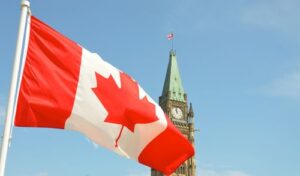The Canadian deficit is projected to be $343.2 billion in 2020-21, announced the federal government on Wednesday, adding that the COVID-19 crisis is the challenge of our generation.
“The COVID-19 pandemic has had a major impact on the social and economic well-being of Canadians in every part of the country. For many it has meant lost jobs, lost hours and lost wages. Our government has understood, from the moment this pandemic began, that it was our role to step in to support Canadians and stabilize the economy. Our investments have meant that Canadians and Canadian businesses, instead of drowning in debt and closing up shop, will be better positioned to get back at it. As economies gradually and safely reopen, we will continue to ensure that Canadians have access to the support they need,” said Minister of Finance Bill Morneau.

While the toll of COVID-19 on the broader economy in 2020 is expected to be the largest and most sudden economic contraction since the Great Depression, measures to flatten the pandemic curve in Canada are paying off, and efforts are underway across the country to safely and gradually reopen the Canadian economy, said the government, adding the road towards recovery remains long and uncertain.
In Canada, 5.5 million Canadians – 30 per cent of the workforce – either lost their jobs or saw their hours significantly scaled back over March and April, it said.
“Private sector economists expect an annualized decline of over 40 per cent in Canada’s real GDP in the second quarter of this year. They expect the economy to contract by 6.8 per cent in 2020 as a whole, its sharpest drop since the Great Depression, before rebounding by 5.5 per cent in 2021,” said the government.
In a statement, Dan Kelly, President of the Canadian Federation of Independent Business (CFIB), said the organization is disappointed that the economic and fiscal snapshot from the federal government did not provide details on how the federal aid programs will be retooled for economic recovery.
“This was a missed opportunity to share details on much needed changes to the existing programs that still exclude too many,” said Kelly. “While the government’s investment of an additional $50 billion in the Canada Emergency Wage Subsidy (CEWS) is welcome news, we are already several days into the latest 28-day period for July with no details of how the new rules will work. It is hard for CEWS to do its job if employers don’t know if they qualify for July.
“The snapshot also revealed that only $221 million, less than 10 per cent of the money allocated, for the Canada Emergency Commercial Assistance Program (CECRA) program has been used. Many businesses in dire need of rent assistance have been shut out of the program and may have to shut their doors as a result. In addition, businesses with personal savings accounts and newer firms are still waiting for the promised expansion of the Canada Emergency Business Account (CEBA) to include them. CFIB has also asked the government to increase the amount businesses can borrow under the program from $40,000 to $60,000 and increase the forgivable portion to 50 per cent, as the initial amount is simply not enough four months into the economic crisis.
“Small businesses were further hoping government would announce its intention to postpone scheduled tax hikes, including the federal carbon tax and CPP expansion planned for early next year. The government also needs to put forward a plan to transition workers from the Canada Emergency Response Benefit (CERB) to the wage subsidy as a step towards unsubsidized employment. The economic and fiscal projection released today is dire and it underscores the toll COVID-19 has taken on small businesses. They need assurance that the government is focused on recovery and will be swift in enacting measures that will support them. Certainty is a cheap stimulus measure that can help many businesses. Today’s fiscal update was a missed opportunity to provide some certainty to small business owners.”

